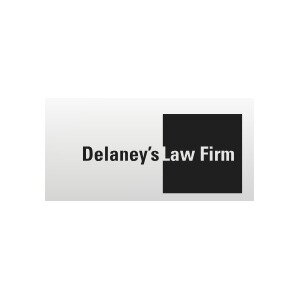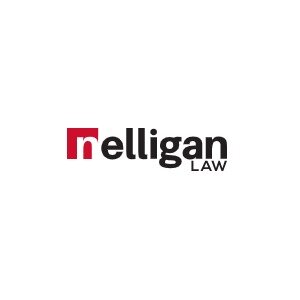Best Foreclosure Lawyers in Ottawa
Share your needs with us, get contacted by law firms.
Free. Takes 2 min.
Free Guide to Hiring a Real Estate Lawyer
List of the best lawyers in Ottawa, Canada
About Foreclosure Law in Ottawa, Canada
Foreclosure in Ottawa is a legal process through which a lender attempts to recover the balance of a loan from a borrower who has stopped making payments. This is achieved by forcing the sale of the asset used as the collateral for the loan. As with other parts of Canada, Ottawa foreclosure laws are complex and are governed by the Ontario Mortgages Act.
Why You May Need a Lawyer
Common situations where individuals may need legal assistance in foreclosures include: being served with a Notice of Default, dealing with a Power of Sale, and contesting an unjust foreclosure. A knowledgeable lawyer can help navigate the complex foreclosure process, negotiate with the lender on your behalf, and provide advice on various options such as refinancing, filing for bankruptcy, or selling the property to avoid foreclosure.
Local Laws Overview
Key aspects of foreclosure laws in Ottawa involve the rights of redemption and the power of sale. The right of redemption provides borrowers with a specific period to pay off their mortgage and halt the foreclosure. Unfortunately, in Ontario, unlike some provinces, this period is typically very short.
The Power of Sale is a unique feature in Ontario law, allowing the lender to sell the property without the court's involvement, provided certain notice requirements are met. It's faster, and can be initiated after just 15 days of a missed payment.
Frequently Asked Questions
What happens when my property is in foreclosure?
When a property is in foreclosure, it means the lender has initiated a lawsuit to take control of the property due to missed mortgage payments. The lender can then sell the property to recoup their losses.
How can I stop a foreclosure?
You can stop a foreclosure by remedying the default, selling the property, paying off the mortgage, or reaching an agreement with the lender. Consulting with a legal expert is advisable in such scenarios.
What is a power of sale?
A power of sale is a clause in the mortgage agreement that allows the lender to sell the property without a court order in the case of default. This process is common in Ontario.
What rights do I have as a homeowner?
As a homeowner, you have the right to pay off the mortgage to reclaim your property within a specific timeframe, as well as the right to any remaining profits after the property is sold to pay off the debt.
Can the lender go after my other assets?
Typically, in Ontario, the lender can only recover the loan amount through the sale of the property itself. However, if the sale proceeds do not cover the loan, they may sue for the deficiency.
Additional Resources
For more detailed information, you may wish to consult the Ontario Mortgages Act or reach out to local legal aid services. The Law Society of Ontario also provides a tool to find local legal professionals who specialize in foreclosure.
Next Steps
If you need legal assistance with foreclosure, consider finding a lawyer who specializes in this area. Preparing your mortgage documents and a list of questions can help make your first meeting as productive as possible. Remember to consult with different lawyers to find one who meets your needs and budget.
Lawzana helps you find the best lawyers and law firms in Ottawa through a curated and pre-screened list of qualified legal professionals. Our platform offers rankings and detailed profiles of attorneys and law firms, allowing you to compare based on practice areas, including Foreclosure, experience, and client feedback.
Each profile includes a description of the firm's areas of practice, client reviews, team members and partners, year of establishment, spoken languages, office locations, contact information, social media presence, and any published articles or resources. Most firms on our platform speak English and are experienced in both local and international legal matters.
Get a quote from top-rated law firms in Ottawa, Canada — quickly, securely, and without unnecessary hassle.
Disclaimer:
The information provided on this page is for general informational purposes only and does not constitute legal advice. While we strive to ensure the accuracy and relevance of the content, legal information may change over time, and interpretations of the law can vary. You should always consult with a qualified legal professional for advice specific to your situation.
We disclaim all liability for actions taken or not taken based on the content of this page. If you believe any information is incorrect or outdated, please contact us, and we will review and update it where appropriate.









